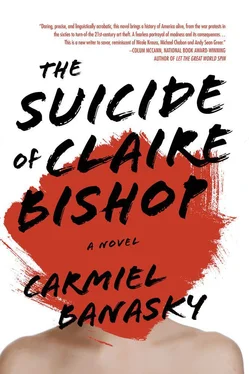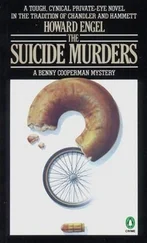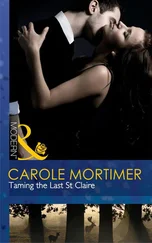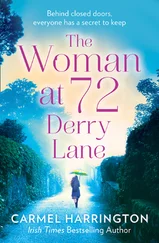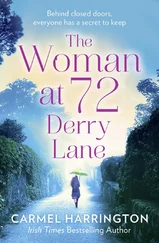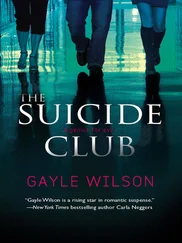Jill blew on his tea in response, watching her above the rim of his mug.
“Stop looking at me like that. It’s not as bad as I make it sound. I feel very lucky. The doctors say I should feel very lucky.”
“You don’t have to feel what they tell you to.”
“So you’re still the anarchist. Well, thank you. But you should try it sometime, feeling lucky.”
“Do you have someone? Who takes care of you?” Jill asked, glancing at his big hands holding his little mug.
“I still know how to use the toilet.”
“I mean if things get worse. You know what I mean.”
“My bees will take care of me.” Claire grimaced.
“I’m being serious.”
“So am I. Everything will fall into place.” Claire turned her face toward the hive. “My first colony ran away, those ingrates. Two winters ago. I’d had them for four good years, and then they just disappeared. Isn’t that strange? I was hurt by it. It felt like they’d run away from me.”
Jill blew on his tea.
“Drink your tea,” Claire said.
He took a sip and tried, but not very hard, to smile at her.
She sighed. “A few years, I’ll be like my mother. I took care of her at her worst. Or right before.”
“I didn’t know that.”
“Why would you? It got so I couldn’t do it anymore. She needed a nurse around all the time. I wasn’t strong enough.”
“I bet you were plenty strong,” Jill said.
“I mean I couldn’t physically lift her in order to clean her off when she messed the bed. She wanted to die. And she figured out how. She starved herself.”
With his cup to his lips, Jill said, barely audibly, “Don’t get any funny ideas now.”
She raised her eyebrows. “Like what? Like finally offing myself?”
“Don’t say that.”
“My mother said it. She made it very clear she wanted to die and I wouldn’t let her. She asked for help and I pretended not to hear. And it was the one desire of hers I respected. What do you think of that? What would you do if someone asked you to help them die?”
Jill stared out the window. “Where do you think the bees went when they disappeared?”
But Claire wasn’t about to let up. He’d put himself in this position, showing up without warning, wanting to make amends. Revealing himself as her last best hope.
“I wasn’t brave enough when my mother asked,” Claire said.
“Could they have just move into another hive?”
“You might have been brave enough, if it was your mother.”
“They probably died in the cold,” Jill said.
“Look at me.”
Jill looked at her. “What are we talking about here? Brave enough for what? This is nonsense.”
Claire tried to stand. But the stupid chair was too saggy to provide her any leverage and she stumbled back down to sitting in the process. “I’m very tired. It’s time you go.”
“Already? Can I come by again?” He stood up, then sat back down. “We could talk more. There’s still a ton we didn’t talk about.” He scanned the mostly empty walls as if for a topic. He wouldn’t find the painting here, if that’s what he was looking for. “Like Lawrence. And the boys. Guess they’re not boys anymore.”
How much money did you get for it, Claire didn’t ask. Did it go to the cause?
“Lawrence and — oh, man, did I really forget his name?” Jill kept on.
“Carlos.”
“Now I’m being corrected by a woman with Alzheimer’s. Or, sorry, too soon to joke.” He nodded. “I lost touch with them.”
“And Bird?”
“Bird — he died. Didn’t you hear? After he got back.”
“How?” Claire probed, but she knew the answer.
Jill stood again, tossing his gas mask up and down. “He was in a lot of pain, mentally, so. It wasn’t that long ago. I hadn’t seen him in years. I had to read about it in the paper.”
He couldn’t even say the word suicide. What good was he to her?
“I wish I’d seen him,” he said, meeting her eyes.
“It’s all right,” Claire said. She didn’t blame him, not for anything.
He shrugged. “I should let you rest. But I’ll call you. I’ll stop by. If that’s okay.”
She said only, softly, “Let yourself out.”
When the door shut behind him, the bees buzzed loudly in her defense. She thought about sending them after, to keep an eye on him.
Jill came by again. And again, Claire did not recognize him until they were in her doorway.
As they stood at her window admiring the top-bar hive, again for the first time, Jill asked, “Do you want some tea? Are you hungry?”
“Oh, yes,” Claire said. “For one thing, I don’t have to cook for myself anymore. They bring food to my door. Isn’t that nice?”
Jill laughed. “What program treats you like a queen like that?”
He had a nice laugh. Claire stared at him, and laughed, too. “Yes.”
“No,” Jill said. “Who brings food to your door?”
“Oh, I don’t know.”
Jill waddled around with his hands in his pockets, not looking at her. “I’m not much of a cook. But I make an edible pasta. Do you like pasta?”
Claire frowned, then laughed again, unsure of what he wanted her to say.
“I want to help,” Jill said. “I can. Money, or whatever.”
Claire tried to think about this a moment, but there was a cloud in the way. She couldn’t see around it, or through it. She could not kill it. Finally, she landed on a simple phrase that might satisfy him. It was such work to satisfy him. “Good for you,” she said with a smile.
PART X: WE LAUGHED UNTIL WE WERE NO LONGER PEOPLE 2004
There is a black raincloud inside the car. I am a dog being driven out to the country only to be ditched on the side of the road — except that we’re in Friday morning rush hour heading into the city from the airport. I don’t dare look Dan in the eye when he swings his head toward me in the backseat of his new sedan where I’m huddled up wet. His rainy beard rubs against the headrest. Keep your eyes on the road, I want to tell him, even though he’s in the passenger seat. The road is barely visible through the veil of rain around us. Jules says nothing, her hands on the wheel at ten and two. I bet she offered to drive so she wouldn’t have the chance to hit me. They called her number on my emergency card from the airplane . What a shock that must have been. A privilege, really, to get a telephone call from thirty thousand feet in the air. She might have cried. But I already apologized, I think. I’m not going to say it again.
I realize that I got overwhelmed on the plane and that jumping would have been nuts. It would not have gotten me closer to Nicolette. Because it would have killed me. I’m getting distracted from the logic. I have to find a quiet place to read over my mathematical proof, starting back at Premise 1.
“So you’re off your meds, I take it?” Jules asks the road whizzing under us.
Isn’t that funny — we talk about being off or on meds like it’s a trampoline, when really they are in you, undoing you. “I’m a little too soaked to talk right now,” I say. Which is true, after standing outside with that Homeland Security guard — a Hasid — waiting at the airport. We stood in the rain like it wasn’t raining at all. I’d hidden the painting tube the best I could under my shirt. One of those big New York summer rains, but not warm. As if a whole season passed since I was here last, which is wrong because that was only three days ago.
You were just testing back there, Tricky Voices. Is that what it was, a test? You knew the plane door was not the right door. But what is the right door? I must get out from under Dan’s gaze in order find it.
Читать дальше
